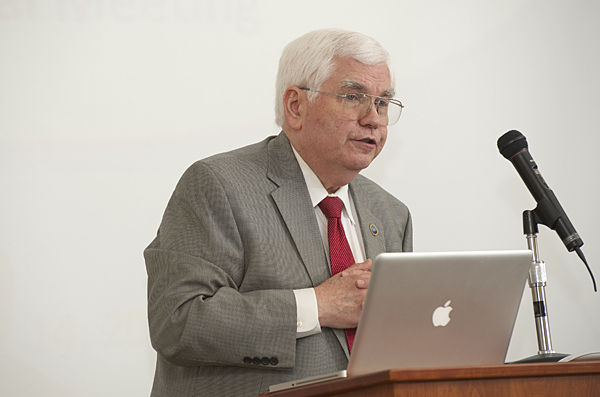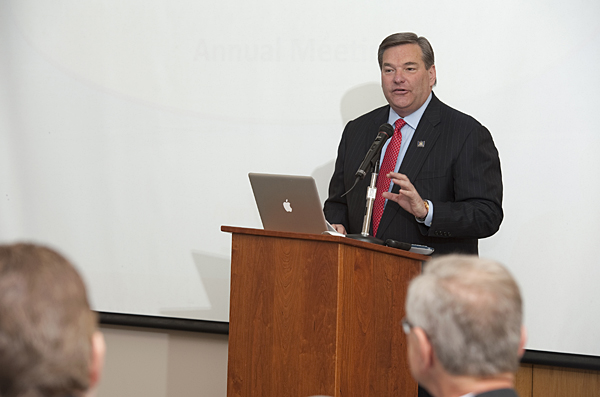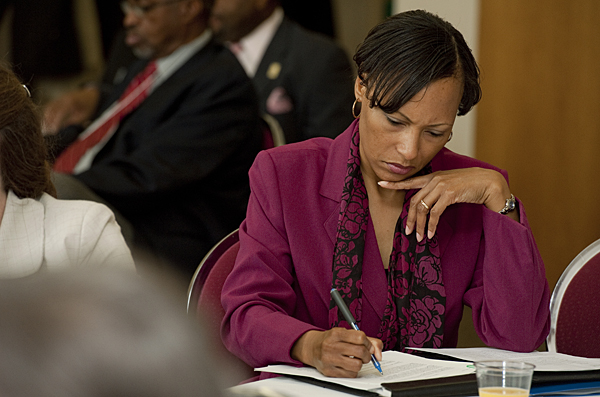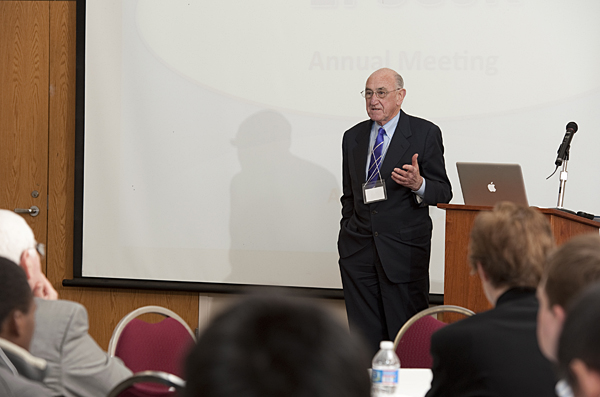

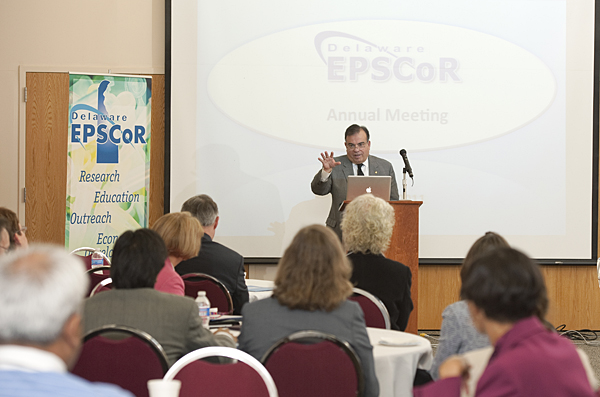
Delaware EPSCoR annual meeting
State leaders mark progress, plans in economic and workforce development
8:40 a.m., April 25, 2011--Delaware EPSCoR, the statewide network that links higher education institutions with the public and private sectors to develop Delaware's research infrastructure and capacity, held its annual meeting on April 14 at the Delaware Technical and Community College campus in Dover.
At the meeting, approximately 70 people representing the University of Delaware, Delaware State University, Delaware Tech, and Wesley College, as well as state agencies and the National Science Foundation (NSF), focused on how the program is having an impact on economic and workforce development in the state.
Research Stories
Chronic wounds
Prof. Heck's legacy
Henry Blount, head of the NSF EPSCoR Office, complimented Delaware EPSCoR on being a model of partnership for other states. Delaware is one of 29 states currently being funded by NSF’s Experimental Program to Stimulate Competitive Research (EPSCoR).
Alan Levin, secretary of the Delaware Economic Development Office, told the audience that he and Delaware Gov. Jack Markell were firmly committed to the continuation of the program, which he said was “doing the most important work possible, creating new economic opportunities for the future” of the state.
Citing the recent struggles of the more traditional pillars of the state’s economy, Levin said that the Markell administration is interested in diversifying Delaware’s economy and has put in place programs such as the Delaware Strategic Fund to assist new technology- and knowledge-based businesses.
“Delaware is open for business,” he said, “and more importantly, we are open to your new ideas and resources.”
Since its inception in 2003, Delaware EPSCoR has largely focused its efforts on developing the environmental science and engineering capacity of the state. Collin O’Mara, secretary of the Delaware Department of Natural Resources and Environmental Control (DNREC), spoke to the group about Delaware’s environmental priorities, which he also views as market opportunities.
“A strong economy depends upon a healthy environment, something that has been repeatedly demonstrated over the millennia,” he said. “I happen to think that smart environmental policy can drive economic development as well.”
O’Mara said that Delaware should be breathable, drinkable, safe, livable and sustainable, and he outlined the major challenges to be addressed in each of these categories, citing areas where research collaborations with Delaware’s universities are already under way or would be useful in the future.
UD’s Office of Economic Innovation and Partnerships was a direct outgrowth of the Delaware EPSCoR program, and its director, David Weir, summarized the accomplishments of that office in turning research discoveries into marketable innovations. The office has recently made available a “proof-of-concept fund” to enable faculty to develop working prototypes of their inventions to demonstrate their economic value.
“Our goal is to have in place a continuum of funding opportunities from the discovery stage to commercialization,” Weir said.
Stephanie Smith, vice president for academic affairs at Delaware Tech, also spoke about Delaware Tech’s role in developing the state’s future workforce, saying, “We prepare the workforce to deliver the knowledge-based products and services that we are seeking to develop.”
To that end, Delaware Tech is proposing to adopt the Centers of Excellence model that has served the California community college system well in ensuring its programs are meeting emerging workforce needs.
In addition, each of the partner institutions presented their program’s accomplishments during the past year and heard from NSF staff regarding upcoming funding opportunities. A poster session was held during the lunch break, giving faculty and students who have received funding through the EPSCoR program a chance to showcase their work and network with each other.
Article by Beth Chajes
Photos by Kathy F. Atkinson




